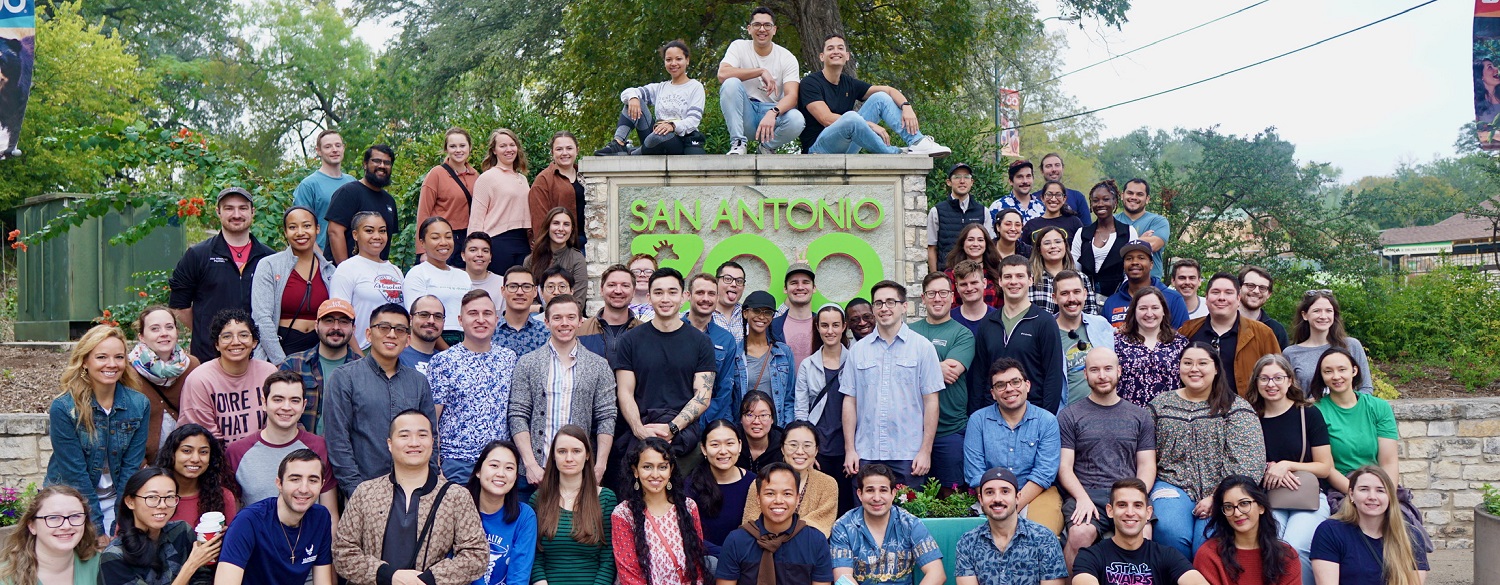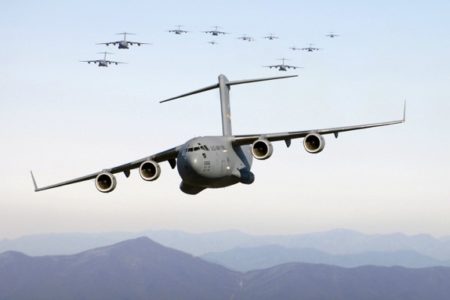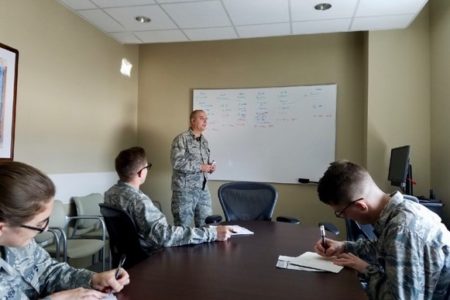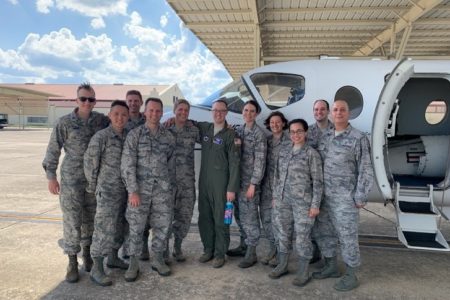
Combined Air Force and Civilian Program
Overview
UT Health San Antonio (UTHSA) psychiatry residency is highly unique as one of only two programs in the United States that is integrated with military psychiatry training. As such, the program offers a diverse, exceptional, multi-faceted educational experience, creating psychiatrists who can practice competently in a wide variety of systems ranging from civilian community practice to the VA Healthcare system and the active duty military environment.
 History
History
San Antonio has earned the moniker “Military City USA” and is considered a hub of military medicine. Beginning in the 1990s, an extensive restructuring of the Military Health System and the training of military physicians began. By 1997, the Air Force had partnered with UTHSA to create a combined Air Force and civilian psychiatry residency program. UTHSA assumed directorship, administrative, and accreditation responsibilities for the training of active duty Air Force residents, while the Air Force continued to fund the residents’ training and provide additional clinical sites for both Air Force and civilian residents.
Culture of the Program
UTHSA is one of the largest psychiatry residency programs in the United States. The program is comprised of 60% civilian and 40% active duty Air Force residents, and is completely combined in all aspects of training and education. Civilian and military residents work side by side at each of the core clinical sites. The singular program is comprised of residents from both backgrounds, but all are UTHSA residents.
 Benefits of a Combined Program
Benefits of a Combined Program
For Military:
The program allows Air Force residents to receive outstanding psychiatry training, while ensuring military knowledge and acculturation are not neglected. From their experiences at military clinical sites, Air Force residents are fully prepared upon graduation from residency to be stationed anywhere in the world, supporting the operational mission of the US Air Force. From their experiences at community and VA clinical sites, they also become fully competent in the management of chronic and severe mental illnesses and substance use disorders—conditions that are not as commonly seen within the military population.
For Civilian:
The opportunity to care for active duty service members provides civilian residents with unique insight into military culture and “military life,” as well as a more thorough understanding of the veteran population. With more than 2 million active duty/reservist military personnel and over 18 million veterans currently residing in the United States, the likelihood is high that civilian graduates will work with military members/veterans at some point during their career. Thus, expertise gained in treating this population during residency is truly invaluable. Additionally, it opens doors and creates job opportunities after residency in either the VA or DOD system.
Unique Aspects for Military Residents
Air Force residents are on active duty status during residency and are expected to meet military standards for physical fitness, dress, appearance, and behavior. They receive military officer salary and benefits. In addition, other unique training opportunities and benefits are available to Air Force residents, including but not limited to:

- Generous funding for conference attendance
- Exposure to Military Unique Didactic Curriculum
- Rotations in military forensic and occupational psychiatry
- Participation in military readiness and mass casualty training exercises
- Occupational psychiatry rotations at other bases at home or abroad (approval required)
- Operational Flight Medicine training (approval required)
- Participation in Squadron Officer School (by correspondence)
The San Antonio Uniformed Services Health Education Consortium (SAUSHEC) hosts the training of over 700 U.S. military officers in 36 Graduate Medical Education (GME) and 24 Graduate Allied Health Education (GAHE) specialty programs. For more information on the San Antonio Uniformed Services Health Consortium (SAUSHEC), please visit: bamc.tricare.mil/About-Us/SAUSHEC
For more information on the Wing that the psychiatry residents are attached to, 59th Medical Wing, please visit: 59mdw.af.mil
Overall
UT Health San Antonio’s civilian/military combined training model generates a synergism in clinical education that greatly benefits both civilian and Air Force residents alike. The exceptional training opportunities that this program affords is one of many reasons future psychiatrists are attracted to be a part of UT Health San Antonio Psychiatry Residency.
